Why BetterVet?
Our mobile veterinarians examine pets in their favorite spot - a comfy couch, a cozy pet bed, or even your lap! See how we work to keep pets relaxed and happy at home.
Depending on your location, BetterVet doctors provide expert surgical services for routine, elective, and outpatient procedures. These services are performed by our doctors at partner hospitals, a BetterVet on-site location, or our mobile surgical units.
Note: Surgical services are available in select locations. An in-home visit is required within the last two months before the date of surgery, or what is recommended by your veterinarian. To schedule your pet’s surgery, please fill out our General Surgery Inquiry Form.
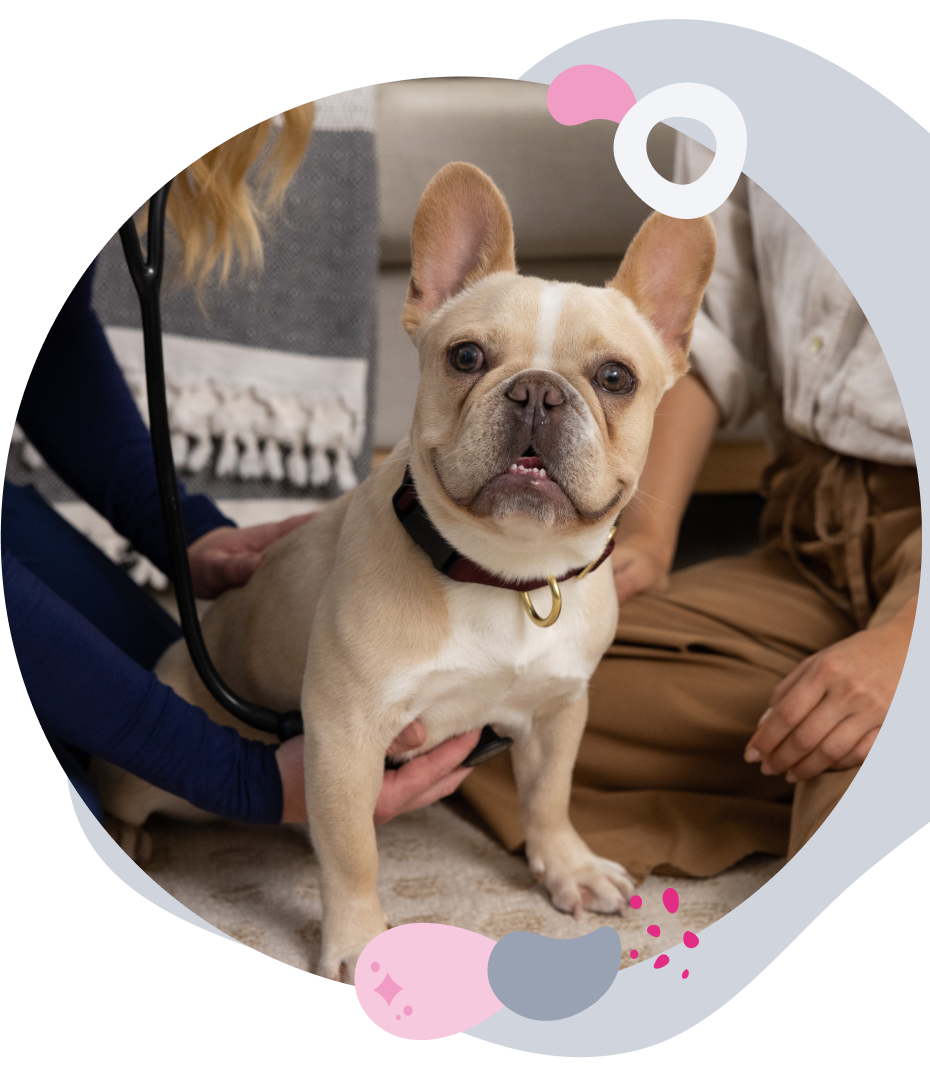
Our veterinarians are skilled in routine and elective surgeries. Mobile vet surgeries include: spaying & neutering, dentistry, soft tissue, biopsies, laceration repair, dermal mass or lump removal, ACL surgery, ear hematoma, eye surgeries, and tumor removal.
Our veterinarians work in pairs with a veterinary technician so that your pet can be closely monitored at all times. From our convenient appointment booking to your pet’s recovery from surgery, we’ll make the experience as smooth and stress-free as possible.
All of our veterinarians are board-certified in small animal medicine, and have the knowledge and expertise to perform surgical procedures.
Your pet will be in good hands with our compassionate veterinary teams, who will ensure that you and your pet feel comfortable and cared for every step of the way.
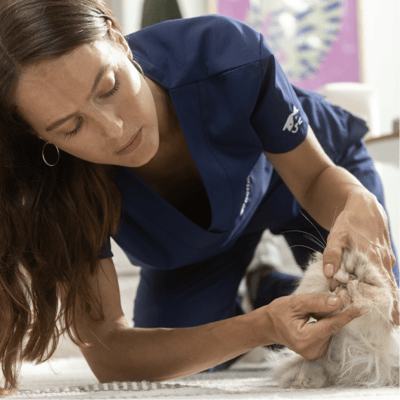
A Pet Wellness Exam is required within two months of your pet’s surgery (or when recommended by your veterinarian) to make sure they are in good health and will tolerate anesthesia well. Blood work, x-rays, or an ultrasound may be also recommended prior to surgery (for an additional cost).
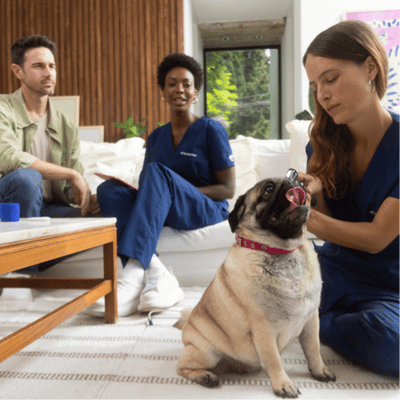
Your veterinarian will make a plan for your pet’s surgery based on your pet’s individual history and needs, the surgical procedure taking place, and your pet’s expected recovery.
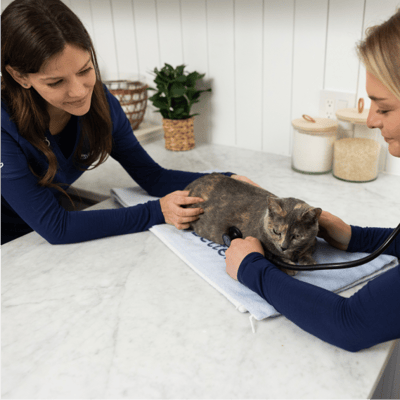
During your pet’s surgery, they will be under anesthesia and will not feel any pain. Our veterinary care teams work together to monitor your pet closely during the entire procedure.
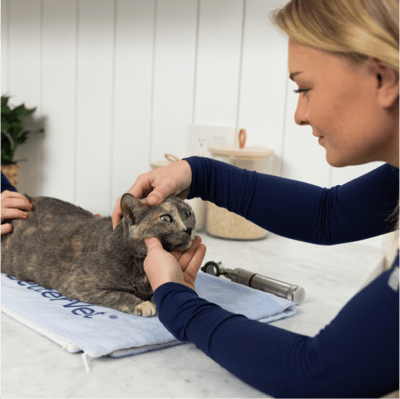
Each surgical procedure will have its own protocol, based on best practices, ensuring your pet’s comfort and safety.
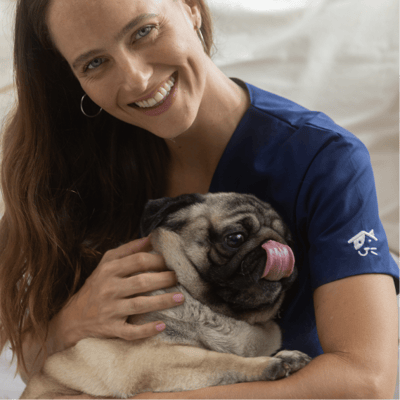
Your veterinarian will provide a post-surgery plan for your pet that may include medications such as antibiotics, anti-nausea, and pain relievers. Procedures requiring sutures may need to be removed at a recheck visit after the surgery. Detailed post operative instructions will be communicated to you as well as any signs to look for.
Depending on where you live, our veterinarians can perform a number of routine surgical procedures for pets, providing a continuity of care. Your pet will be anesthetized during surgery and will be prescribed medication for pain
Prevent unwanted litters and certain health issues with a pet spay or neuter surgery.
Our veterinarians are skilled in dental cleanings and dental surgeries, including extractions, when necessary.
Soft tissue surgery is a term that describes most routine veterinary surgeries but does not include orthopedic surgery.
If you or your veterinarian discover a lump or mass on your pet, they may recommend that a biopsy be performed by removing a small tissue sample for further testing.
If your veterinarian recommends that your pet’s lump, mass, or tumor be removed, they will help you to schedule the procedure. During a mass removal, your veterinarian or specialist will surgically remove the mass and possibly some surrounding tissue.
If your pet has a wound that requires stitches, then your veterinarian may be able to perform a laceration repair under anesthesia or heavy sedation.
What is known as ACL surgery for humans is actually called CCL (cranial cruciate ligament) surgery in pets. If your veterinarian recommends CCL or TPLO (Tibial Plateau Leveling Osteotomy) repair surgery for your cat or dog, they will evaluate if they can perform the surgery and in some cases will refer you to an orthopedic surgeon.
Common eye surgeries for pets include cherry eye surgery, cataract surgery, and eye removal. Your veterinarian will determine whether they are the best person to perform your pet’s surgery or if a referral to a veterinary ophthalmologist is necessary.
Cystotomy is surgery of the bladder, commonly performed to remove bladder stones, or to remove a tumor or blockage. Depending on location, your veterinarian may be able to provide cystotomy services in a BetterVet mobile vehicle, on-site location, or partner hospital.
Ear hematomas occur when blood accumulates in a pet’s ear flap, creating swelling. Treating an ear hematoma is usually a simple procedure involving making a small incision and draining the fluid under anesthesia.
Your veterinarian will discuss the size and location of your pet’s mammary tumor(s) with you and make recommendations regarding the best surgical plan for your pet.
After your pet’s surgical procedure, your veterinarian will create a postoperative treatment plan that may include medication for pain, suture care instructions, and follow-up appointments. They will provide detailed instructions for you to follow and let you know or any signs to watch out for.
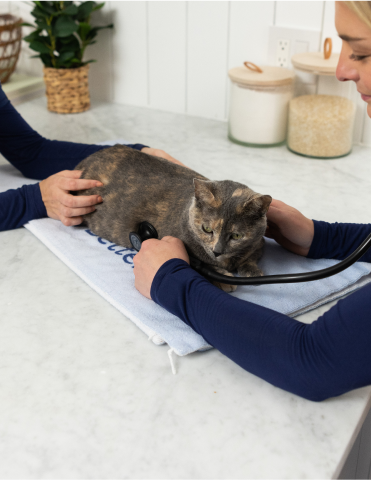
Amazing experience with Dr. Kingsley and her assistant. She did surgery on one of my cats and it was so convenient to be able to stay home. The prices are similar to using a vet clinic. I will definitely be using her again. With multiple pets it is so much easier to have someone come to me.
Skip the traffic by booking a mobile vet visit with one of our trusted veterinarians. We bring full-service vet care to you!